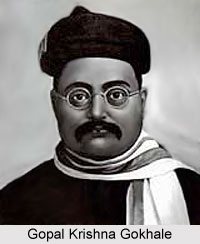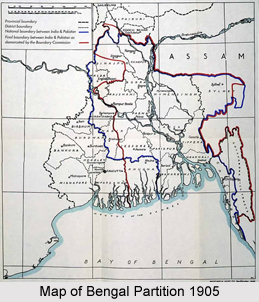 Contribution of Gopal Krishna Gokhale post partition of Bengal 1905 has been immense as he played crucial role in cooperation and mutual existence of Hindus and Muslims. In 1906 the Muslim League was formed as a party independent of the Indian National Congress. Three years later, the principle of separate electorates was conceded, whereby a proportion of seats in the Legislative Council were set aside for Muslims elected by other Muslims. In the background of these potentially polarizing events, Gokhale urged for better relations between Hindus and Muslims.
Contribution of Gopal Krishna Gokhale post partition of Bengal 1905 has been immense as he played crucial role in cooperation and mutual existence of Hindus and Muslims. In 1906 the Muslim League was formed as a party independent of the Indian National Congress. Three years later, the principle of separate electorates was conceded, whereby a proportion of seats in the Legislative Council were set aside for Muslims elected by other Muslims. In the background of these potentially polarizing events, Gokhale urged for better relations between Hindus and Muslims.
After glancing briefly at the past history of the two communities and the contributions made by them to the progress of the world, Mr. Gokhale proceeded to consider their respective positions at the present day in India. The Muslim minority, who were a little over one-fifth of the whole population, was very unequally divided among the different Provinces. The bulk of the Muslims did not differ from the Hindus in race, but they had to remember that religion was a most powerful factor in life and it modified and sometimes profoundly modified race characteristics.
In numbers, in wealth, in education and public spirit, the advantage at present laid with the Hindus. They had also so far contributed far more than the other community to the national awakening in India. But they were greatly hampered by caste, and by temperament they were mild and passive. On the other hand, the Muslims were burdened with fewer divisions, their social structure rested on a more democratic basis, they had more cohesion among them, and they were more easily roused to action.

The worst of the situation was that over the greater part of India the two communities had inherited a tradition of antagonism, which, though it might ordinarily lie dormant, broke forth into activity at the smallest provocation. It was that tradition that had to be overcome. The progress in that direction was bound to be slow and there were sure to be repeated set-backs. But they must believe in final success with all their will and persevere ceaselessly against all odds.
Gopal Krishna Gokhale had all along been in favour of special separate electorates for important minorities but he wanted such electorates to provide not the whole of the representation to which the communities were entitled but only so much of it as was necessary to redress the deficiencies and inequalities of general elections; and he wanted the same treatment to be extended to other important minorities than Muslims where necessary. Gokhale held strongly that in the best interests of their public life and for the future of their land they must first have elections on a territorial basis in which all communities without distinction of race or creed should participate and then special separate supplementary elections should be held to secure the fair and adequate representation of such important minorities as had received less than their full share in the general elections.
Mr. Gokhale could not see how that mattered in determining the extent of the representation which the Government of India should grant to its own subjects, unless it was on the assumption that in the administration of this country, those whose heart was not with India were to have preference over those whose was. Gokhale played a positive role in making sure that, at very given time, there was no problem that aroused between the Hindus and Muslim.




















